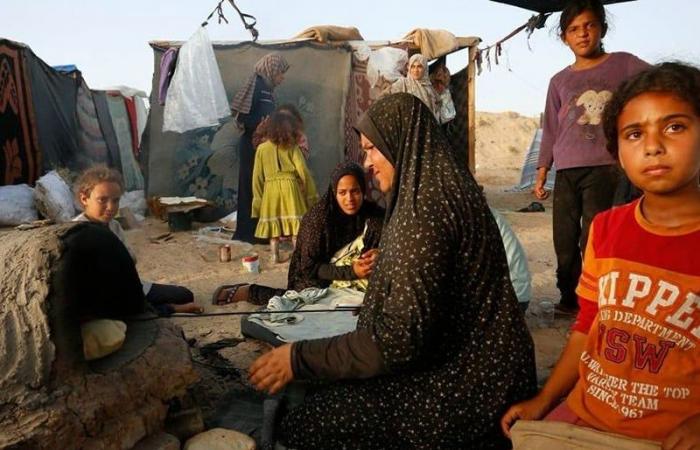The threat of famine in the north of the Gaza Strip, in a context of intensification of Israeli army operations and an almost total cessation of food aid, a UN report warned on Saturday.
This report from the Integrated Food Safety Classification Framework (IPC), warns against “an imminent and considerable likelihood of famine, due to the rapidly deteriorating situation in the Gaza Strip.”
“The famine thresholds may have already been crossed or will be in the near future”estimates the document.
On October 17, a previous IPC report, the result of the expert work of NGOs and UN agencies including that for Food and Agriculture (FAO) based in Rome, estimated that some 345,000 Gazans will face hunger at one level “catastrophic” between November 2024 and April 2025, or 16% of the population.
This assessment corresponds to the highest level of the Integrated Food Security Classification Framework, level 5 (3: crisis, 4: emergency, 5: disaster).
However, since then, the situation has deteriorated in the north of the Gaza Strip with the collapse of food systems, a drop in humanitarian aid and a critical situation in terms of water, sanitation and hygiene, underlines the report.
“We can therefore estimate that hunger, malnutrition and excess mortality due to malnutrition and disease are increasing rapidly,” he notes.
Israeli forces launched a large-scale, high-intensity operation in the northern Gaza Strip last month to prevent the Hamas movement, behind the October 7 attack, from can reform combat units.
According to the report, the number of aid shipments allowed into the Gaza Strip is now at its lowest level since October 2023.
As access to food continues to deteriorate, prices are soaring on the black market: gas has increased by 2,612%, gasoline by 1,315% and wood by 250%, according to the report.
“Alongside extremely high prices for essential goods, which continue to rise, livelihoods that enable the purchase or barter of food and other basic needs have collapsed,” he emphasizes.






